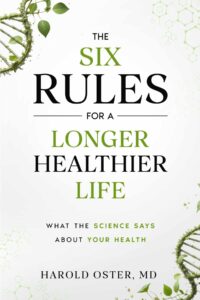Is Coffee Good For You?

So many people don’t believe that coffee is good for them.
As always, I am not giving medical advice. Consult your physician before you make a significant lifestyle change.
Last weekend, my wife and I went for a run. Our three-mile route ends at the Caribou Coffee, and we each had an Amy’s Blend Dark Roast, my new favorite. We were sitting outside when a nice gentleman came out of a neighboring business he owns with his wife. We started talking about coffee, and he said it was one of his vices. He also smokes cigarettes but recently managed to quit drinking alcohol. I told him that he should be proud of quitting giving up alcohol. Not only does drinking negatively affect your health, it makes it more difficult to accomplish anything, including quitting other vices.
Then, I told him that a moderate amount of coffee has few, if any, serious risks and has significant health benefits. He seemed skeptical. Everyone knows that drinking coffee can make some people anxious. It can cause the heart to skip a beat, causing a feeling in the chest called palpitations. Some people also get heartburn or a temporary tremor. People who drink massive amounts, say, ten cups a day, may have some other problems, but 2-4 cups a day has been shown to generally do more good than harm.
Aside from relatively minor symptoms, coffee at reasonable doses has not been shown to cause heart disease or cancer. You may find some older studies suggesting a link between coffee drinking and certain cancers, but people who drink coffee are more likely to smoke, and it is difficult to adjust for that association, making it look like coffee is causing cancer rather than the smoking.
Drinking the common types of coffee (drip, espresso, instant, and decaf) was associated with a decreased risk of heart disease. It was also associated with a reduced overall risk of dying. Interestingly, drip and instant were associated with decreased rhythm problems, but decaffeinated was not. Regardless, according to the studies, these coffee types are good for you.
What makes coffee good for us? Many compounds in coffee have antioxidant properties. These may help lower the risk of diseases, including cancer. More complex explanations of coffee’s benefits are mentioned in the heart article I link to above. This article is more scientific than our needs, but it explains some interesting anti-cancer effects of coffee.
You may have read about the diterpenes in coffee beans. Diterpenes are a group of chemicals that tend to affect cholesterol levels adversely. Certain brew methods allow higher levels of diterpenes to enter the coffee we drink. Instant and filtered coffee have the least. Boiled, French press, and moka have the most. Espresso is in the middle. If you want to have the healthiest drink, I recommend filtered. I drink an instant iced and a filtered pour-over most days. Articles on the internet claim that coffee made by a Keurig has a low level of diterpenes, but I cannot find a study. Even if true, I prefer a pour-over.
There are studies showing that acrylamide, a chemical found in coffee and most cooked foods, can cause cancer in rats. I don’t necessarily recommend reading the article on the link. It is confusing. But, the amount of acrylamide in a cup of coffee is very low, even in instant coffee, which has the most. I am not concerned. The important thing is that overall, coffee seems to lower the risk of dying and doesn’t appear to increase the risk of cancer.
As far as vices go, I don’t consider coffee to be one. At reasonable levels of drinking, it is not harmful to most people. It appears to lower the risk of heart disease and to reduce overall mortality. I drink it every day. If it gives you palpitations, anxiety, or a tremor, cut back, change to decaf, or quit. I’ll write about the wonderful benefits of tea some other time.

